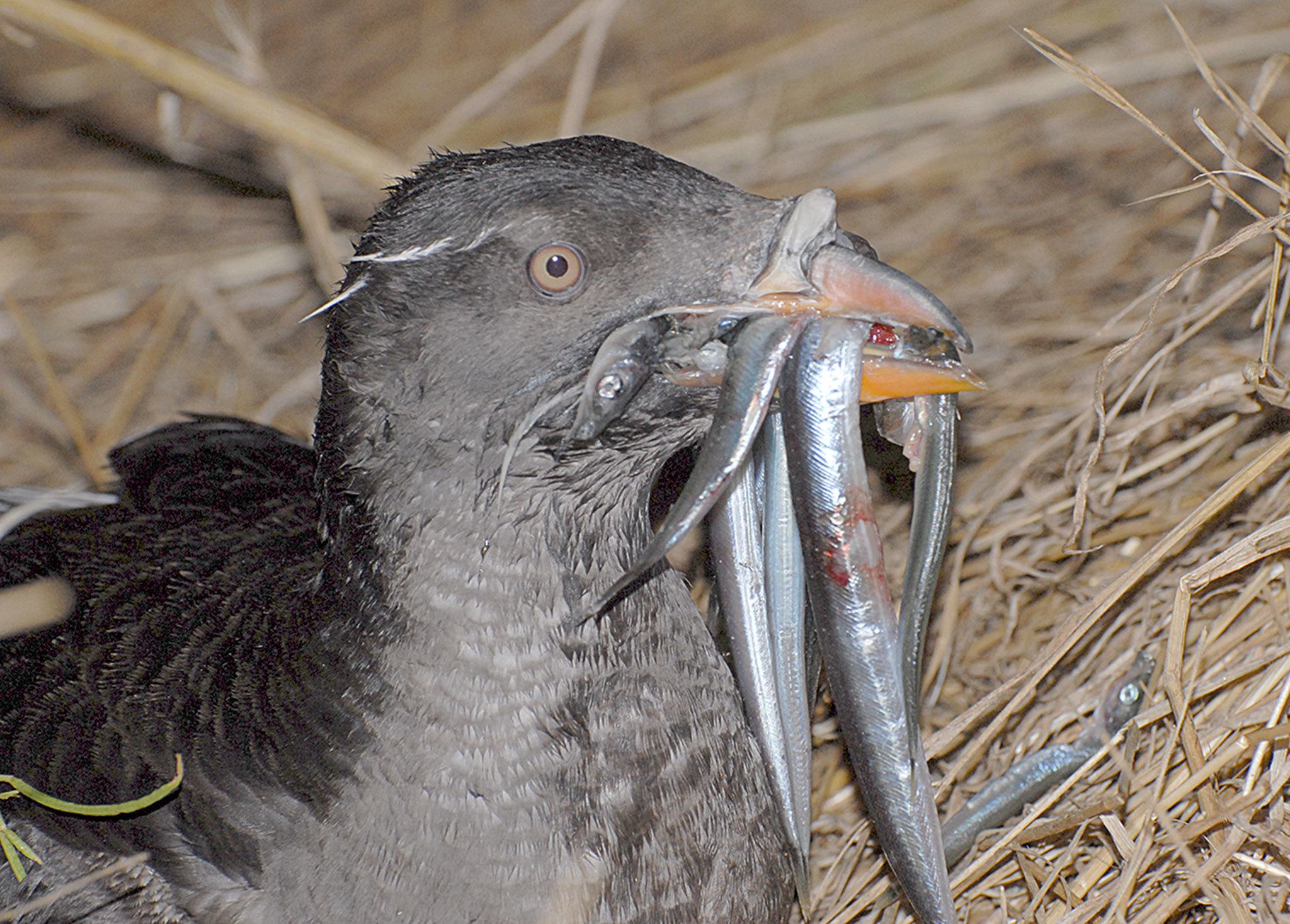PORT TOWNSEND — Scientists are getting closer to understanding why hundreds of rhinoceros auklets, a seabird closely related to puffins, have been found dead in the eastern part of the Strait of Juan de Fuca.
They may have starved.
About 400 emaciated birds have washed ashore on beaches west of Port Angeles, near Victoria, and as far east as Whidbey Island since May, said conservation biologist Peter Hodum, an associate professor at the University of Puget Sound.
Possible pneumonia
Necropsies of some of the birds performed by the U.S. Geological Survey National Wildlife Health Center showed the birds may have died from bacterial pneumonia.
What isn’t clear is whether they first caught pneumonia then starved, or if the birds couldn’t find food and then became more susceptible to pneumonia, Hodum said.
Hodum, one of the scientists looking into the deaths, originally believed the birds’ breeding on the Protection Island National Wildlife Refuge west of Port Townsend was going as usual.
“Everything led us to believe it was going to be a perfectly fine season,” he said.
Last week, Hodum visited the island to check on the growing chicks and found this year was anything but normal.
“Most chicks were three to four weeks behind their typical development,” he said. “That suggests a shortage in the food supply.”
He also found a high number of dead chicks, he said.
It appears to be the lowest chick survival rate Hodum has seen in the past several years.
An estimate of the chicks’ survival rate on Protection Island for this year falls between 54 percent and 77 percent. The lower estimate is “much more realistic,” Hodum said.
“Even under the optimistic fledging success scenario, 2016 ranks as the worst fledging success recorded since we began monitoring in 2006,” he said.
When Hodum was on Protection Island last week, he found that the fish the parents are bringing to their chicks are much smaller than they normally would be this time of year.
Typically at this time, parents would be bringing large sandlance and medium to large herring for their chicks to eat, he said.
“This suggests they are struggling to find their preferred food to feed their chicks at this stage of the season,” he said.
What is unknown is if the chicks’ mortality is related to the adults dying, he said.
Hodum said members of the public should use caution if they see the birds on the beach, whether they are alive or dead.
It isn’t yet known if the bacterial pneumonia can be transmitted to humans. The birds are being tested for avian influenza.
The Coastal Observation and Seabird Survey Team has asked the public to allow its hundreds of trained volunteers who monitor beaches along the Strait of Juan de Fuca to deal with the birds.
Discovery Bay Wild Bird Rescue in Port Townsend is asking people who find live birds to contact them at 360-379-0802 if they find live birds.
Cindy Daily, a licensed rehabilitator who runs the bird rescue, said she may be able to rehabilitate the seabirds.
Daily said earlier this week that she had rehabilitated a sickly rhinoceros auklet found in Port Angeles about two weeks ago.
“It was just very very skinny, but now it’s doing great,” she said. “It’s going to recover and be released.”
________
Reporter Jesse Major can be reached at 360-385-2335, ext. 5550, or at jmajor@peninsuladailynews.com.


